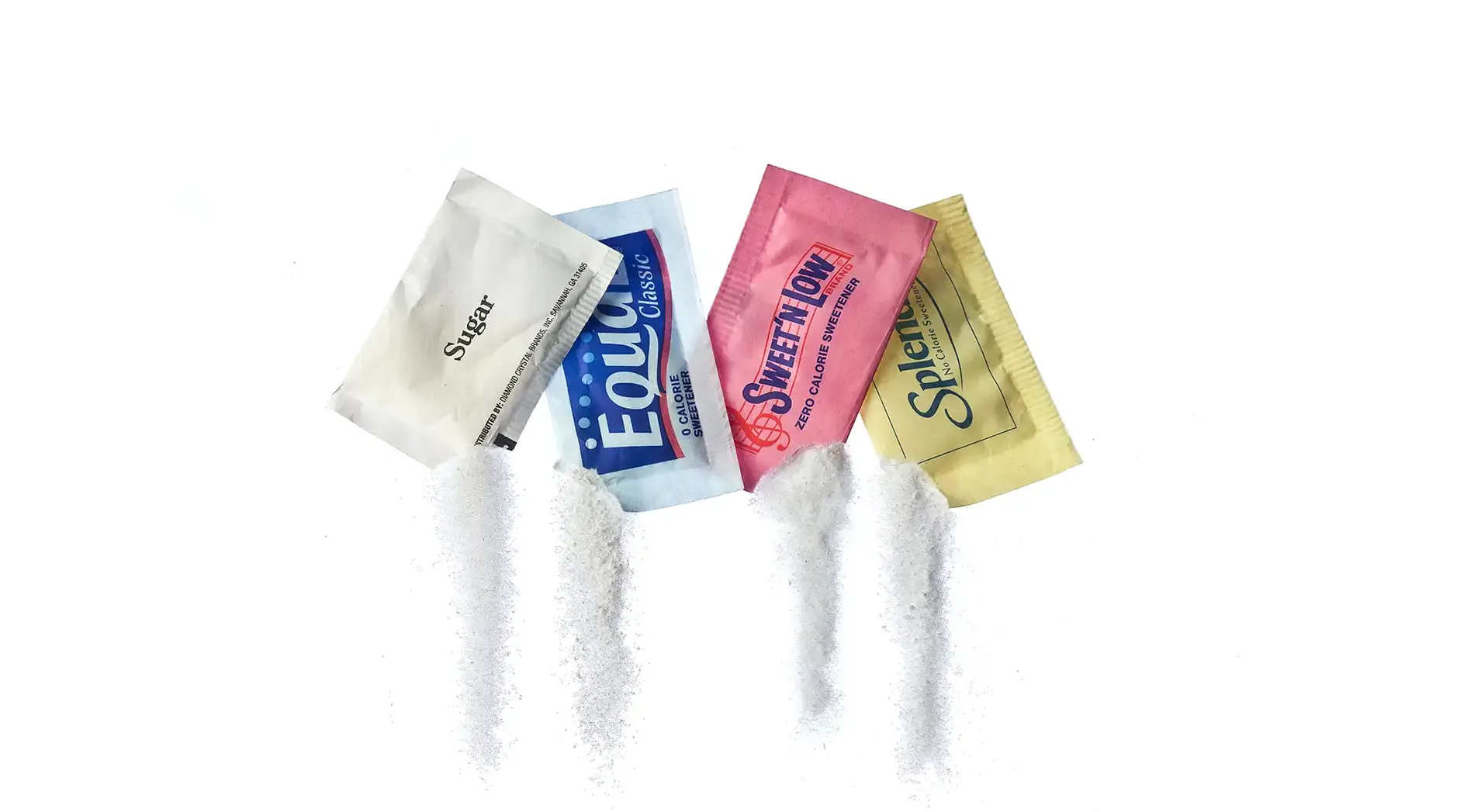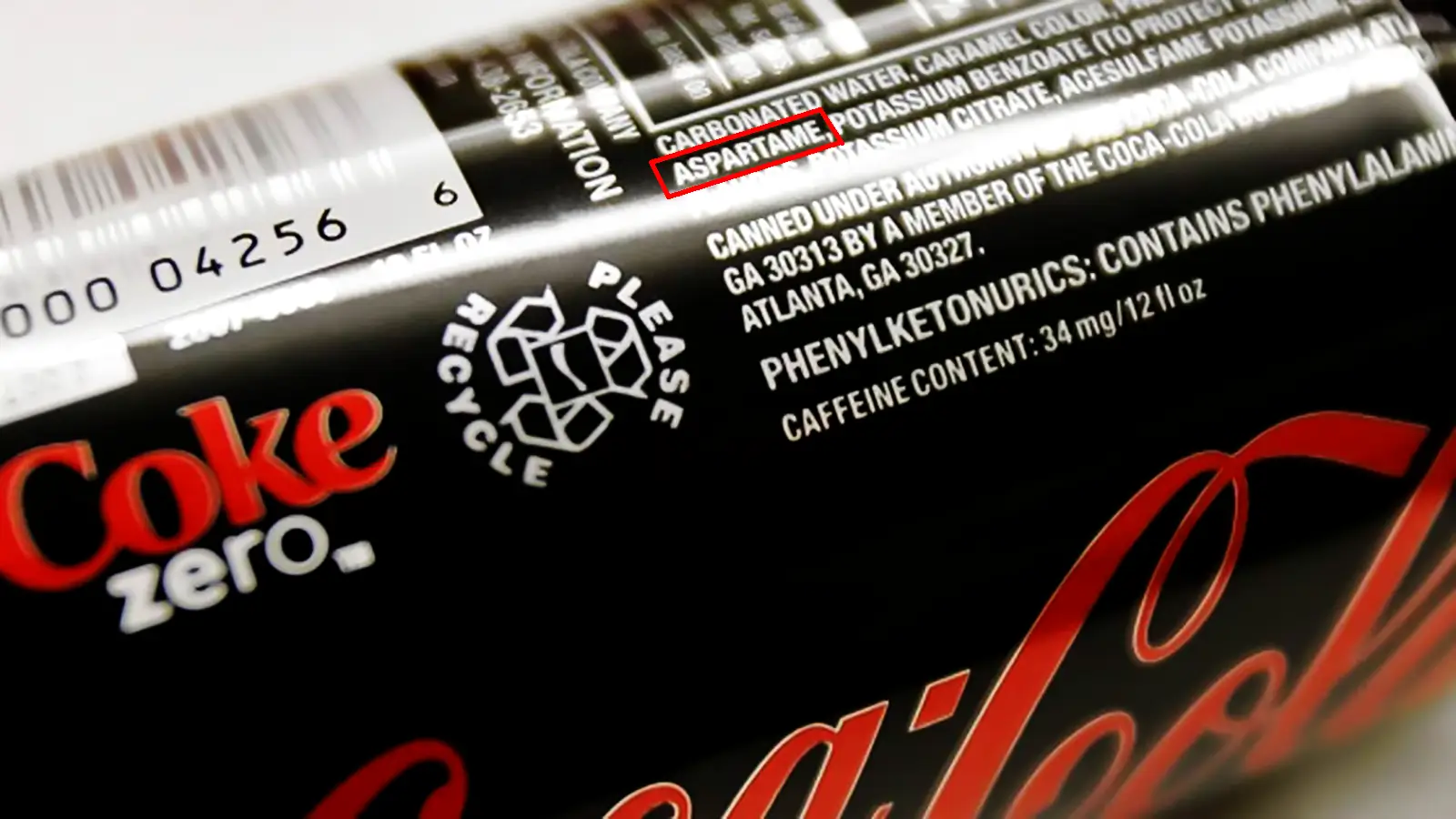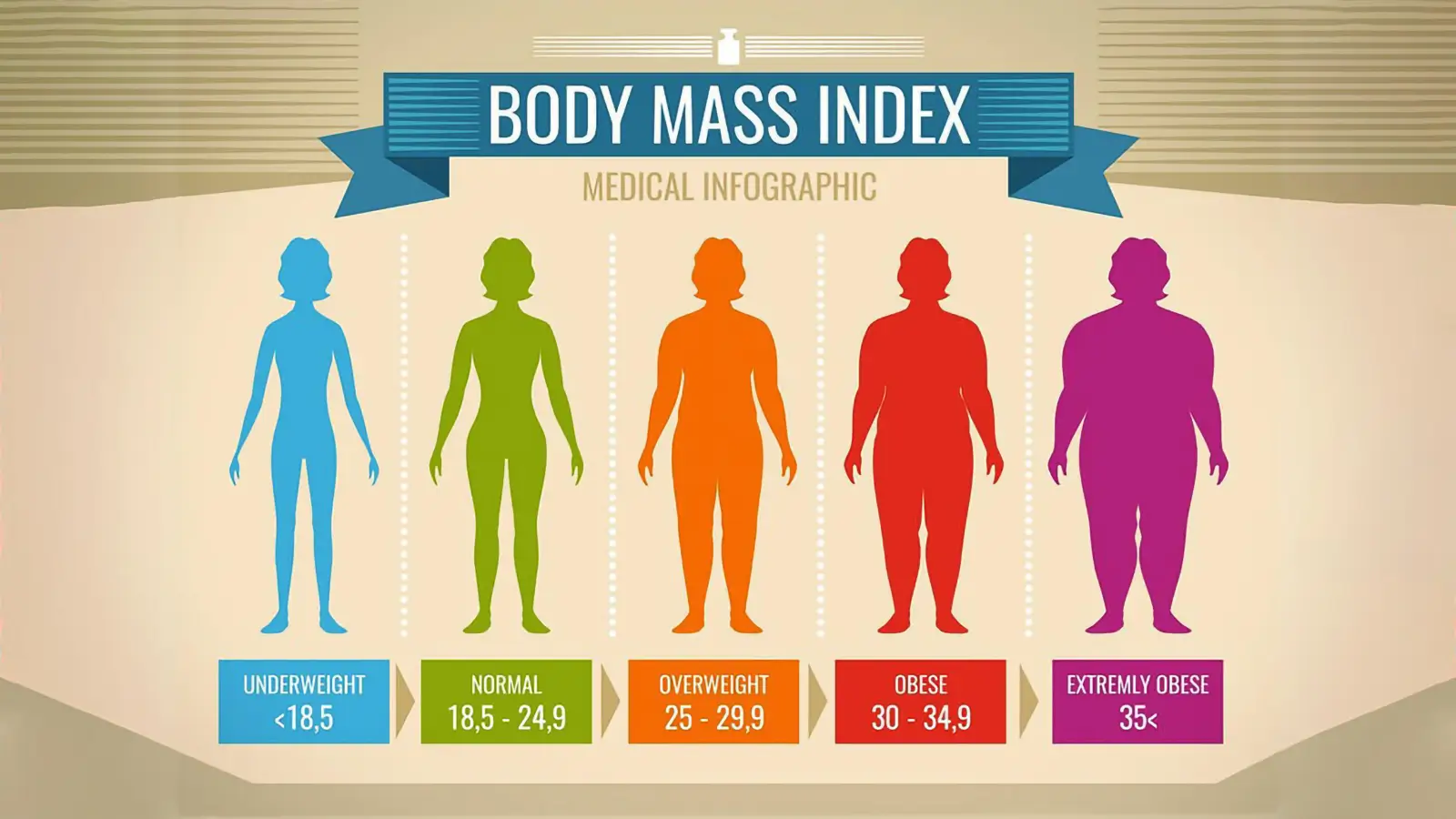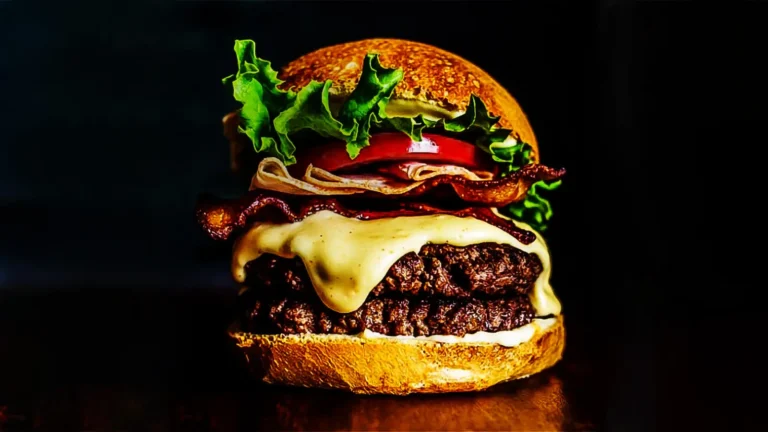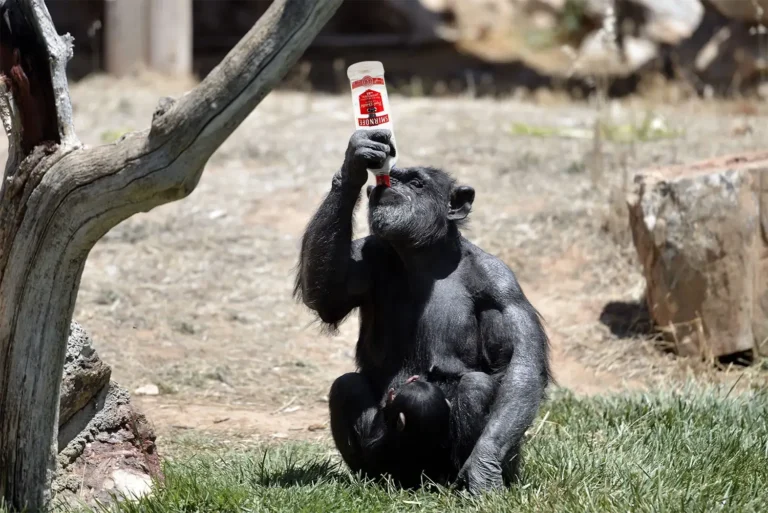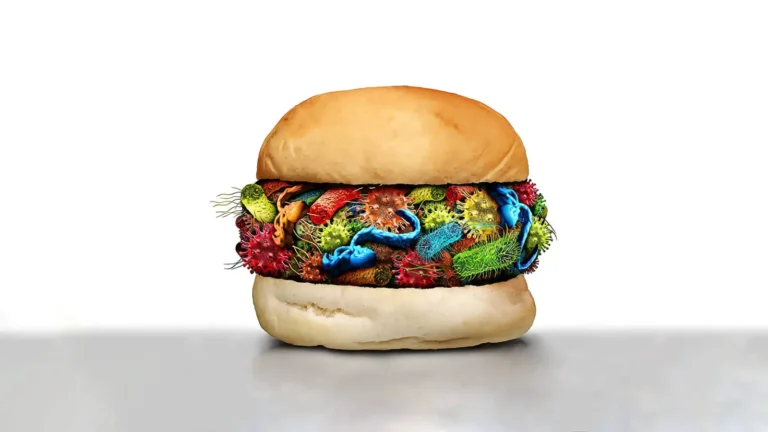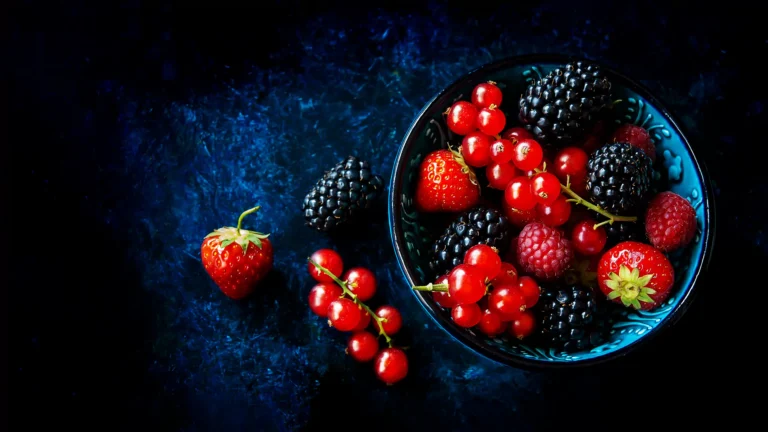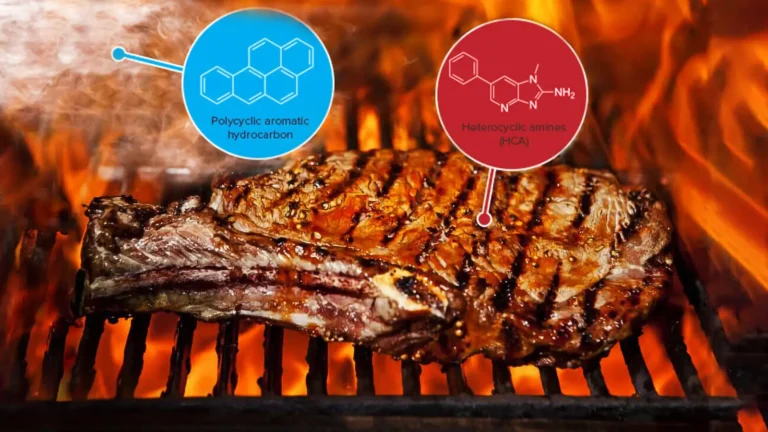Supernormal Stimuli- Binge Eating Disorder and Appetite Regulation
When we see a hamburger, it is supernormal stimuli. Primal urges affect our behavior forcing us into binge eating disorder.
Milos Pokimica
Written By: Milos Pokimica
Medically Reviewed by: Dr. Xiùying Wáng, M.D.
Updated August 4, 2023When we see a hamburger, it is supernormal stimuli, or when we see any food item that does not exist in that form in nature especially if it combines any form of fat and carbohydrates or regular sugar together it is supernormal stimuli. Primal urges or instincts affect our behavior and our reptilian brain and basically control us more than we would like to admit forcing us into binge eating disorder.
Extremely sweet or fatty food that we have today but were not present in nature, captivates the brain reward circuit in much the same way that cocaine and gambling can do. Even just seeing the food will trigger the brain’s response. As quickly as such food meets the tongue, taste buds give signals to different areas of the brain. That will result in a response that will trigger the release of the neurochemical dopamine. Frequently overeating highly palatable foods saturate the cerebellum with a significant amount of dopamine that forces the brain to ultimately adjusts by desensitizing itself, decreasing the number of cellular receptors that identify and respond to the neurochemical. High and constant dopamine level is the form of stimulus that is over-excessive, something called supernormal stimuli.
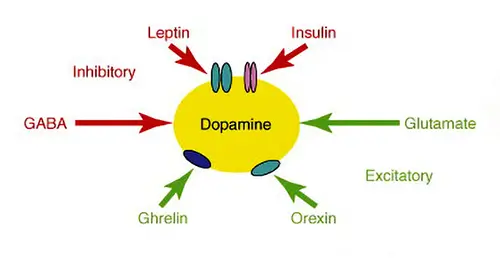
There is a problem with conditioning too. When you spend years working on that promotion or spend years in college and finally get that job or diploma you feel great. It takes time and effort. But when you go to the fridge and open a bag of chips you feel great too. However, there is a problem. In nature, we would have to work very hard to get that bite, and it was not salted or filled with fat and sugar. Alternatively, when we wanted to find a mate, we had to be able to fight off other males. We would have to work for it hard for any reward. It would take significant time and effort.
However, in the modern era, it is effortless. One phone call to the pizza place and that is it. Instantaneously we can reward ourselves with pleasure no time or effort needed. Moreover, there are drugs, movies, video games, alcohol, and gambling. These things are all forms of instant gratification. There are too easy to obtain, and they provide short bursts of pleasure. This conditioning alters our perception and reconfigures our reward centers in the brain. Modern environmental stimulants may activate instinctive responses that evolved before the modern world. When we can get supernormal stimulation all the time effortlessly our brain downregulates the receptors, and we have a problem, we need more. Also, when we do get more, the brain will downregulate the receptors some more, and we again need more. It becomes an addictive behavior before we overdose.
In the book, Wasteland: The (R)Evolutionary Science Behind Our Weight and Fitness Crisis, Harvard psychologist Deirdre Barrett analyzed very well how junk food triggers exaggerated stimulus to natural cravings for salt, sugar, and fats. The issue is that most regular people are not psychologists and can’t detect this in their own behavior.
Supernormal stimuli exist in nature too. When scientists isolate the traits that can trigger certain instincts like colors or shapes or patterns and then apply them to animals, they go behaving extremely instinctively and outside of normal behavior. Instincts had no bounds. Once the researchers isolate the instinctive trigger, they can create greatly exaggerated dummies that animals would choose instead of the realistic alternative. For example, seeing red male stickleback fish would ignore the real rivals and attack wooden replicas with brightly painted underbellies and be even reacting aggressively when the red postal van passed the lab window. Songbirds would abandon their eggs that are pale blue dappled with gray and sit on black polka-dotted fluorescent blue dummies so big that they would continuously slide off. They would prefer to feed fake baby birds with more full and redder mouths than their real ones and the hatchlings would ignore their parents to beg for food from fake beaks with more dramatic markings.
It is easy to assume that these kinds of behaviors reflect some mistake or manipulation but it is far from the truth. The truth is that this is an entirely evolutionary justifiable action and will contribute to the survival of the species. The big colorful egg is a symbol of health for a bird so her instinct is correct and it is conditioned to force her to spare more of her time to go to sit on a black polka-dotted egg because that egg is having more chances for success hatching. In nature, there are no mistakes only in the human interpretation of nature.
Birds will never be exposed to technology, so the supernormal stimuli are positive conditioning for the survival of the species. In a technologically driven modern environment, it is a different story. We have not been adequately adapted in the evolutional sense to our modern environment, and the consequences are terrible.
For example, obesity is an epidemic, and not just obesity, but most of our other health problems as well. All of the so-called diseases of affluence are physiological maladaptations in essence. Why? Because pleasure-seeking actions in all forms drive most of our behavior. It will make us eat even when we are not hungry in pursuit of pleasure and satisfaction. It will make our brain overstimulated in any possible form and way we can think of. The problem is significant on a population scale and can become even worse in specific individuals that have levels of dopamine receptors that are less expressed. It can make them susceptible to compulsive behavior.
Our physiology is not adapted to be continuously bombarded with supernormal stimuli, to have instant gratification in all forms, never to feel hunger, never to have to do any physical activity, and to have a never-ending stream of animal products, sugar, and fat. We act impulsively, emotionally, and instinctively like most other animals because we are conditioned to do it for survival. Like it or not, in the end, this will have lasting health consequences.
Psychophysical dependence on supernormal stimuli is real. Human beings are evolutionarily conditioned for extreme eating because of the scarcity in nature.
For every animal in existence in nature, hunger is the normal state of being. Alternatively, a constant struggle for food would be more precise. For every animal that lives on this planet, food obsession is a daytime job. Most of the time during their lives animals spend searching for food. There are no supermarkets and cans of ready to eat meals. It is the struggle. Moreover, that was a normal condition for humans even today. Well, at least the body physiology part.
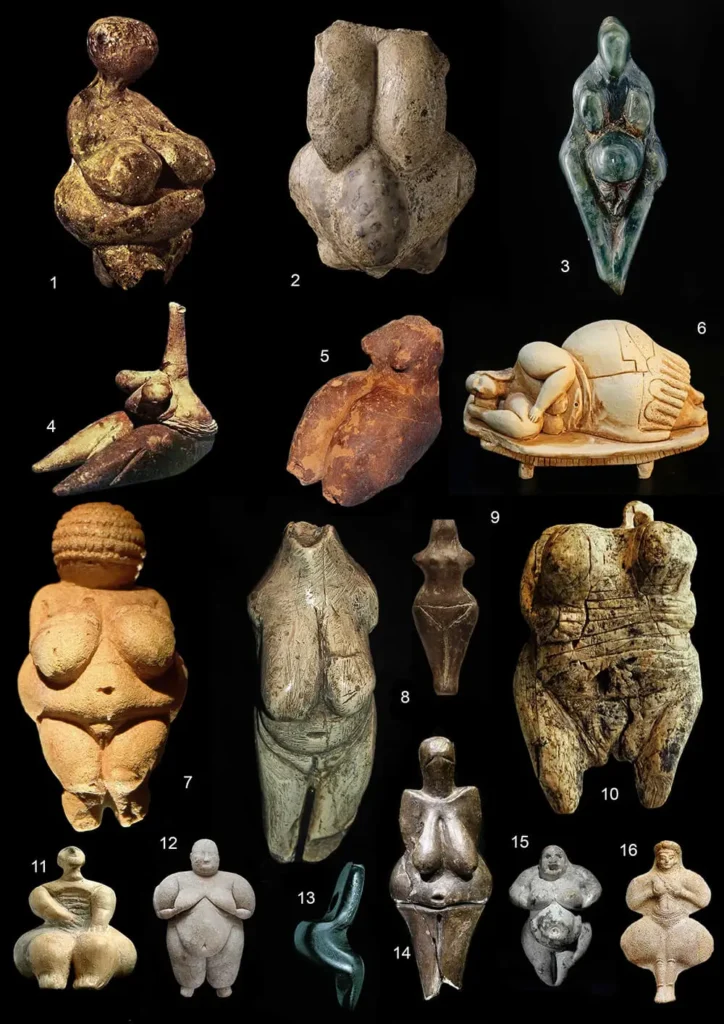
1.Venus of Gagarino, Russia 20,000 BC; 2. Figurine féminine dite manche de poignard de Brassempouy, 23,000 BC; 3. Venus de Losange Italy 25,000 BC; 4. Venus of Tepe Sarab Iran 6500 BC; 5. Neolithic Hassuna Princess „Idol,” 6500-5700 BC Mesopotamia; 6. Malta Venus 4500 BC; 7. Venus of Willendorf Austria 24000 BC; 8. Venus of Moravany Slovakia 23000 BC; 9. Ceramic Figurine of a Woman 5300 BC, The British Museum; 10. Venus from Hohle Fels, Germany 38,000 BC; 11. Cave Ghar Dalam, Malta 5400 BC; 12. Catalhohuk 6000 BC; 13. Venus of Monruz 10,000 BC, Switzerland; 14. Venus of Dolní Vestonice, Czech Republic 29,000 BC; 15. Venus of Anatolia, Turkey 6000 BC; 16. Inanna (Ishtar) Mother Goddess, Mesopotamia 2000 BC.
Our desire and pleasure-seeking behavior are what make us sick. Evolution did not predict electricity and microchips and cars. We are maladapted to our habitat. We have underlined mechanisms that force us to act in an evolutionary protective manner such as overeating food. The not-so-unique obstacle now is that there is no scarcity anymore. Also, even worse, we eat stuff like meat that is not congruent with our physiology. And what is worse we eat it every single meal. And what is even worse we are surrounded by all of the toxic chemicals we never had to deal with in the past, and we do not exercise and move anymore and do not have enough sunlight, and do not have normal relations with other species and other humans. We are technology-dependent, atrophied, and poisoned. We are dependent on our food to be supernormal stimuli and everything around us to be supernormal stimuli. Supernormal is the new normal. Everything has to be supernormal now to be normal. From video games to movies, to drugs to game addiction, to porn addiction, and sex and violence in every frame. Eating kale is not for us anymore. Eating fruit is not for us anymore. The fruit was once upon a time the highest treat we could find in nature. Ultimate dessert. What is fruit today? The hybrid derived from selective breeding is to be sweeter. Had we ever in our life tried real wild fruit without altered genes? Even that over-hybridized variety is no match to pure refined sugar, so we are going to drink colored sugar water like Coke and sodas.
References:
Passages selected from a book: Pokimica, Milos. Go Vegan? Review of Science Part 1. Kindle ed., Amazon, 2018.
Related Posts
Do you have any questions about nutrition and health?
I would love to hear from you and answer them in my next post. I appreciate your input and opinion and I look forward to hearing from you soon. I also invite you to follow us on Facebook, Instagram, and Pinterest for more diet, nutrition, and health content. You can leave a comment there and connect with other health enthusiasts, share your tips and experiences, and get support and encouragement from our team and community.
I hope that this post was informative and enjoyable for you and that you are prepared to apply the insights you learned. If you found this post helpful, please share it with your friends and family who might also benefit from it. You never know who might need some guidance and support on their health journey.
– You Might Also Like –

Learn About Nutrition
Milos Pokimica is a doctor of natural medicine, clinical nutritionist, medical health and nutrition writer, and nutritional science advisor. Author of the book series Go Vegan? Review of Science, he also operates the natural health website GoVeganWay.com
Medical Disclaimer
GoVeganWay.com brings you reviews of the latest nutrition and health-related research. The information provided represents the personal opinion of the author and is not intended nor implied to be a substitute for professional medical advice, diagnosis, or treatment. The information provided is for informational purposes only and is not intended to serve as a substitute for the consultation, diagnosis, and/or medical treatment of a qualified physician or healthcare provider.NEVER DISREGARD PROFESSIONAL MEDICAL ADVICE OR DELAY SEEKING MEDICAL TREATMENT BECAUSE OF SOMETHING YOU HAVE READ ON OR ACCESSED THROUGH GoVeganWay.com
NEVER APPLY ANY LIFESTYLE CHANGES OR ANY CHANGES AT ALL AS A CONSEQUENCE OF SOMETHING YOU HAVE READ IN GoVeganWay.com BEFORE CONSULTING LICENCED MEDICAL PRACTITIONER.
In the event of a medical emergency, call a doctor or 911 immediately. GoVeganWay.com does not recommend or endorse any specific groups, organizations, tests, physicians, products, procedures, opinions, or other information that may be mentioned inside.
Editor Picks –
Milos Pokimica is a doctor of natural medicine, clinical nutritionist, medical health and nutrition writer, and nutritional science advisor. Author of the book series Go Vegan? Review of Science, he also operates the natural health website GoVeganWay.com
Latest Articles –
Plant Based News
-
Vegan Cyclist Wins 2025 National Time Trial Championship
on June 22, 2025
-
DIY Natto: A Home Fermentation Guide to Japan’s Healthiest Breakfast
on June 21, 2025
-
Most Americans Opposed To Cultivated Meat Ban After Tasting It, Says Study
on June 21, 2025
-
11 Vegan Summer Lunches
on June 21, 2025
-
This Watermelon Gazpacho Is A Fresh And Wholesome Summer Starter
on June 21, 2025
-
Sticky Marmalade Tofu
on June 20, 2025
-
Violife Launches ‘Market-First’ High-Protein Cheddar Alternative
on June 20, 2025
Top Health News — ScienceDaily
- Iron overload: The hidden culprit behind early Alzheimer’s in Down syndromeon June 21, 2025
USC researchers have uncovered a hidden driver behind the early and severe onset of Alzheimer’s in people with Down syndrome: iron overload in the brain. Their study revealed that individuals with both conditions had twice the iron levels and far more oxidative damage than others. The culprit appears to be ferroptosis, an iron-triggered cell death mechanism, which is especially damaging in sensitive brain regions.
- Diabetes drug cuts migraines in half by targeting brain pressureon June 21, 2025
A common diabetes drug may be the next big thing for migraine relief. In a clinical study, obese patients with chronic migraines who took liraglutide, a GLP-1 receptor agonist, experienced over 50% fewer headache days and significantly improved daily functioning without meaningful weight loss. Researchers believe the drug s ability to lower brain fluid pressure is the key, potentially opening a completely new way to treat migraines. The effects were fast, sustained, and came with only mild side […]
- Cold sore virus hijacks human genome in 3D–and scientists found its weak spoton June 20, 2025
Cold sore-causing HSV-1 doesn’t just hijack cells it reconfigures the entire architecture of our DNA to aid its invasion. Researchers discovered that it actively reshapes the 3D structure of the human genome within hours of infection, using host enzymes like topoisomerase I to gain access to crucial genetic machinery. Stunningly, blocking this single enzyme shuts the virus down completely.
- Fitness trackers are failing millions — this fix could change everythingon June 20, 2025
Fitness trackers often fail people with obesity by underestimating their energy burn, leading to discouraging results and misguided health data. A scientist’s frustrating experience in an exercise class with his mother-in-law where her effort wasn t reflected on the fitness leaderboard sparked a breakthrough. His team at Northwestern developed a new open-source smartwatch algorithm that accurately captures energy expenditure for individuals with obesity, rivaling gold-standard lab equipment and […]
- Self-esteem skyrockets 131% after weight-loss surgery, study revealson June 20, 2025
Self-esteem scores jumped a remarkable 131% within just one year of bariatric surgery, according to a large study presented at ASMBS 2025. Tracking nearly 5,800 patients, researchers found a direct link between weight loss and rising confidence, with the greatest psychological boosts seen in those who lost the most weight. Despite differences in gender, race, or procedure type, patients across the board reported profound improvements in self-worth. The findings shine a spotlight on how […]
- 99 trials later, fasting ties traditional diets in weight-loss showdownon June 19, 2025
Intermittent fasting might not be a miracle solution, but it stands shoulder to shoulder with traditional calorie-cutting when it comes to shedding pounds and improving metabolic health. A major new analysis reveals that alternate day fasting may have a slight edge, yet none of the methods alone reached clinically meaningful thresholds for weight loss.
- One shot to stop HIV: MIT’s bold vaccine breakthroughon June 19, 2025
Researchers from MIT and Scripps have unveiled a promising new HIV vaccine approach that generates a powerful immune response with just one dose. By combining two immune-boosting adjuvants alum and SMNP the vaccine lingers in lymph nodes for nearly a month, encouraging the body to produce a vast array of antibodies. This one-shot strategy could revolutionize how we fight not just HIV, but many infectious diseases. It mimics the natural infection process and opens the door to broadly […]
PubMed, #vegan-diet –
- Planting Rights and Feeding Freedom: Navigating the Right to a Vegan Diet in Hospitals and Prisonson June 20, 2025
The legal recognition of veganism highlights the evolving landscape of dietary choices and their status under human rights law. This paper examines the legal status of vegan diets under the European Convention on Human Rights (ECHR), focusing on public institutions such as prisons and hospitals. By analyzing the first relevant cases before the European Court of Human Rights, it explores the protection of vegan diets under Articles 9 (freedom of thought, conscience, and religion) and 14…
- Dietary pattern and nutritional assessment in a cohort of mothers identified by neonatal screening for cobalamin deficiency in offspring: an Italian single center experienceon June 19, 2025
During pregnancy, nutrient requirements increase while deficiencies can significantly affect pregnancy outcomes. Deficiencies may result from inadequate dietary intake, impaired absorption, or restrictive diets. This study aimed to retrospectively assess the nutritional status and dietary intakes in a cohort of mothers whose newborns were identified with vitamin B12 deficiency of maternal origin through Newborn Screening. Between 2021 and 2024, 107 newborn-mother dyads with altered biomarkers […]
- Intermittent fasting strategies and their effects on body weight and other cardiometabolic risk factors: systematic review and network meta-analysis of randomised clinical trialson June 18, 2025
CONCLUSIONS: Minor differences were noted between some intermittent fasting diets and continuous energy restriction, with some benefit of weight loss with alternate day fasting in shorter duration trials. The current evidence provides some indication that intermittent fasting diets have similar benefits to continuous energy restriction for weight loss and cardiometabolic risk factors. Longer duration trials are needed to further substantiate these findings.
- Plant-Based Diet and Risk of Iron-deficiency Anemia. A Review of the Current Evidence and Implications for Preventive Strategieson June 17, 2025
PURPOSE OF REVIEW: This review provides a comprehensive overview of iron metabolism, emphasizing the influence of dietary patterns-particularly vegetarian and vegan diets-on iron status and associated health outcomes.
- Protein Intake and Protein Quality Patterns in New Zealand Vegan Diets: An Observational Analysis Using Dynamic Time Warpingon June 13, 2025
Background/Objectives: Inadequate intake of indispensable amino acids (IAAs) is a significant challenge in vegan diets. Since IAAs are not produced or stored over long durations in the human body, regular and balanced dietary protein consumption throughout the day is essential for metabolic function. The objective of this study is to investigate the variation in protein and IAA intake across 24 h among New Zealand vegans with time-series clustering, using Dynamic Time Warping (DTW). Methods:…
Random Posts –
Featured Posts –

Latest from PubMed, #plant-based diet –
- Understanding the intention-behaviour gap in meat reduction: The role of cognitive dissonance in dietary changeby David Fechner on June 21, 2025
Transitioning to a plant-dominant food system is crucial for mitigating climate change, improving public health, and reducing animal suffering. However, despite growing awareness of these benefits, meat consumption remains high in most developed countries, and many individuals who intend to reduce their meat intake struggle to follow through. This longitudinal study, grounded in the transtheoretical model of change and cognitive dissonance theory, examines the psychological mechanisms […]
- Optimal intake of animal-source foods: a scoping review to inform a new WHO guidelineby Magali Rios-Leyvraz on June 20, 2025
CONCLUSION: This scoping review offers a comprehensive overview of existing evidence on animal-source foods and health outcomes and identifies key research gaps to support the development of new nutrition guidelines.
- Specialist Savvy Versus Generalist Grit: Elucidating the Trade-Offs in Adaptive Dietary Ecomorphology Amongst African Green and Bush Snakesby Hanlie M Engelbrecht on June 19, 2025
Kinetic feeding bones of macrostomatan Afrophidian snakes enable them to consume diverse prey types. While significant research has focused on functional feeding morphology in snakes, it often emphasizes broad taxonomic comparisons or species with distinct dietary ecologies. There is limited knowledge of how small variations in prey type composition may influence feeding morphology among closely related species sharing similar ecological niches. African Green and Bush Snakes (Philothamnus) […]
- Chia (Salvia hispanica L.) Seed Oil Supplementation to the Diet: Effects on in Vitro Rumen Fermentation Characteristics and Lipid Biohydrogenationby Selma Büyükkılıç Beyzi on June 19, 2025
The study investigated the effects of chia seed oil supplementation on the diet with different levels of in vitro ruminal biohydrogenation and fermentation. The treatment groups were control (no additional oil) or the addition of 10, 20 and 30 g/kg of chia seed oil in the diet as DM based. The treatment groups were incubated using a batch culture technique, and the fermentation terminated after 6, 12, and 24 h. The biohydrogenation rate of unsaturated fatty acids varied between 71% and 98% […]
- Plant-based milk alternatives: can they replace the iodine from UK cow’s milk?by Katie Nicol on June 18, 2025
Current food systems pose risks to both population and environmental health. Reducing the intake of animal-based foods, such as dairy products, and increasing consumption of plant-based foods align with priorities for addressing climate change and promoting overall health. Plant-based alternatives to cow’s milk can be readily substituted for cow’s milk without altering meal patterns and food habits, making them a popular choice among those reducing animal-product consumption. However,…
- Diet quality, unprocessed plant-based foods, and vascular function in adults with CKD: Secondary analysis of a pilot randomized clinical trialby Luis Perez on June 18, 2025
CONCLUSION: Despite overall low diet quality, higher consumption of unprocessed, plant-based energy and nutrients was associated with lower arterial stiffness. Future studies are needed to explore these associations in larger cohorts with CKD and the effects of diet quality interventions.

